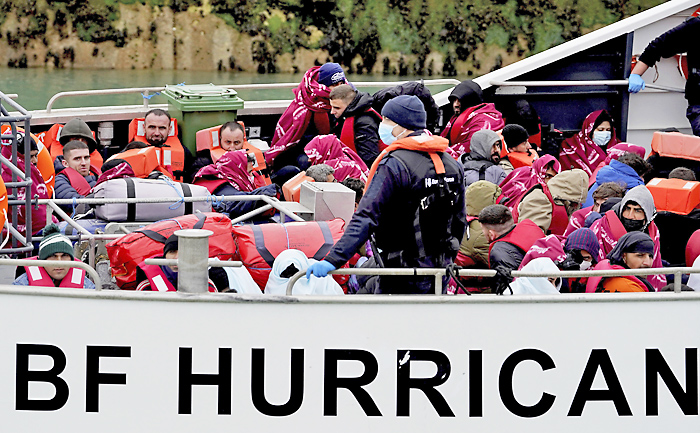LONDON (AP) – Hundreds of people have crossed the English Channel in small boats in the previous 24 hours, British officials said on Monday, after more than a week in which none of the hazardous journeys were reported.
The Ministry of Defence said 254 people arrived on the English coast in seven boats from northern France last Sunday, and more people were brought ashore by British lifeboats on Monday.
The crossings had all but halted since April 20, a few days after Britain announced a plan to send some asylum-seekers to Rwanda. But officials said rough weather, rather than the new policy, was the likely reason for the lull.
Thousands of people a year try to cross one of the world’s busiest shipping lanes in dinghies and other fragile craft in hopes of a new life in the United Kingdom (UK).
More than 28,000 migrants entered Britain across the Channel last year, up from 8,500 in 2020. Dozens have died, including 27 people in November when a packed boat capsized.
In a dramatic move, Britain’s Conservative government announced last month that it had struck a deal with Rwanda to send some asylum seekers who arrive as stowaways in trucks or on boats to the East African country. The agreement said the migrants’ asylum applications will be processed in Rwanda and, if successful, they will stay there rather than coming to Britain.

The British Government said the plan will discourage people from making the dangerous journeys and will put people-smuggling gangs out of business. But it has been condemned by refugee organisations and human-rights groups, and faces legal challenges.
The government has also passed a new law that makes it an offence to knowingly arrive in the UK without authorisation, a move critics said amounts to criminalising refugees.
The charity Care4Calais, which works with migrants in northern France, said many asylum seekers were determined to make the journey despite the new rules. Migrants have long used northern France as a launching point to reach Britain, a destination favoured by many for reasons of language or family ties, or because of Britain’s perceived open economy.
The British and French governments have worked for years to stop the journeys, without much success, and have bickered over who is responsible for the failure.
French National Assembly member for Calais Pierre-Henri Dumont, said the Rwanda plan would likely have little effect.
“When you leave your country because of war, because of starvation… at least if you have a chance, you will try,” he told the BBC.




